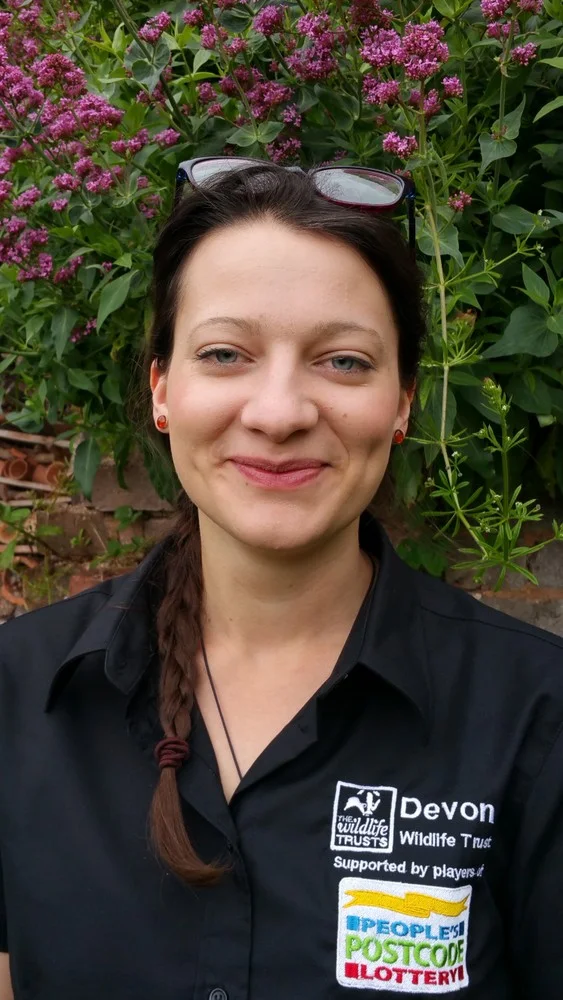A Devon-based wildlife charity is calling for immediate action to control a fishing practice which is leading to thousands of local fish – from a family of fish known as wrasse - being removed from around the coast of Devon. The fish are being transported alive to Scottish salmon farms where they are being used as a ‘natural’ control against parasites.
Today Devon Wildlife Trust is calling for a ban on the live capture of the fish from Devon’s Marine Protected Areas (MPAs)* – places which have been recognised for the richness of their marine nature. The Trust is requesting people in Devon to voice their opposition by signing an on-line petition which asks for action to be taken by the county’s MPs.
The removal of live wrasse for Scottish fish farms is thought to be a relatively new practice. Until now wrasse have not been commercially fished in Devon, however, demand from Scotland for parasite control has meant that five species are now being targeted. These include: corkwing, ballan, goldsinney, cuckoo, and rock cook wrasse.
Recently limited controls on Devon’s wrasse fishery have been implemented by the Inshore Fisheries and Conservation Authority (IFCA), but Devon Wildlife Trust believes that these do not go far enough. It points to a similar wrasse fishery which took place in 2015 in Dorset. This saw 57,000 of the fish taken during just one 18-week period in an area between Lulworth and Weymouth. Now the fear is that a similar operation is underway in Devon.
Devon Wildlife Trust is concerned about the impact this will have on local wrasse populations and the wider marine environment. The charity’s Director of Conservation and Development, Peter Burgess said:
“We’re calling for an immediate stop to the practice of removing live fish from Devon’s MPAs to satisfy the needs of Scottish fish farms. This is a very destructive fishery. Mortality rates among the wrasse are often high - many of them do not survive the process of capture, storage and transportation they are put through.”
“Wrasse are long-lived and highly territorial fish, so the removal of large numbers along the Devon coast will severely disrupt their populations – it could take decades for them to recover.”
Peter Burgess added:
“Nobody yet knows what impacts wholescale removal of wrasse will have on our fragile marine reef ecosystems and the natural balance could be thrown into chaos. This could be devastating for not only the wrasse but habitats and species which depend on them for their survival.”
“The recent moves by the Devon IFCA to partially control the fishery are an acknowledgement of the problem but don’t go nearly far enough to offering a solution. It’s vital that we exercise the precautionary principle and halt the capture and removal of wrasse from our most precious marine environments before long term damage is done.”
Devon Wildlife Trust has evidence that as many as 480 baited traps, known as pots, could be deployed around the county’s coastlines. There are currently no restrictions on where the pots can be placed. As wrasse live on rocky reefs close to shore this means that much of the fishing activity could take place within Devon’s most treasured and protected ‘in-shore’ marine environments, places which include Plymouth Sound Special Area of Conservation and Wembury Voluntary Marine Conservation Area.
Devon’s wrasse are being removed to meet demand from salmon fish farms in Scotland. Wrasse are used as ‘cleaner fish’ helping fish farms by feeding on the sea lice that infest captive salmon and which slow their growth. In the past chemical controls have been used against the lice. However, in recent years the lice have developed resistance to these chemicals and salmon producers have instead turned to the use of ‘natural’ controls in the shape of wrasse and other fish.
Devon Wildlife Trust’s Peter Burgess encouraged people to support the charity’s call for a stop to the mass removal of wrasse for the Scottish salmon industry. He said:
“Devon wrasse populations are being threatened to solve the problems caused by commercial salmon fish farms hundreds of miles away in Scotland. Once commercially viable stocks of wrasse are exhausted from Plymouth our fear is this practice could move to ports throughout the South West.
There are only limited controls on this new fishery and little understanding of its longer term impacts on the health of this fascinating native species and the fragile reef environments the wrasse help to sustain. This is why we’re asking the people of Devon to help us stop the removal of thousands of wrasse from the county’s Marine Protected Areas by signing our on-line petition.”
Details on Devon Wildlife Trust’s wrasse petition can be found at www.devonwildlifetrust.org
Corkwing Wrasse Photo: Paul Naylor/www.marinephoto.co.uk (All Rights Reserved)
Ballan Wrasse. Photo: Paul Naylor/www.marinephoto.co.uk (All Rights Reserved)
Cuckoo Wrasse. Photo: Paul Naylor/www.marinephoto.co.uk
Devon Wildlife Trust’s Peter Burgess
👀👀👀👀
-------------
Marine Protected Areas are “home to some of the most biologically diverse habitats and species in Europe” and are identified as such by the Joint Nature Conservation Council (JNCC), the public body that advises the UK Government and devolved administrations on UK-wide and international nature conservation.






